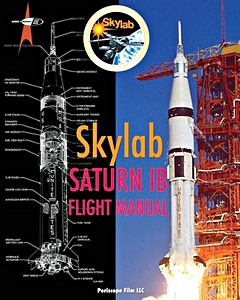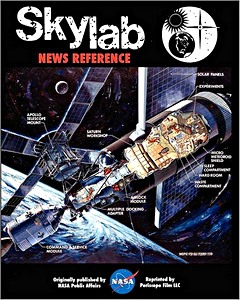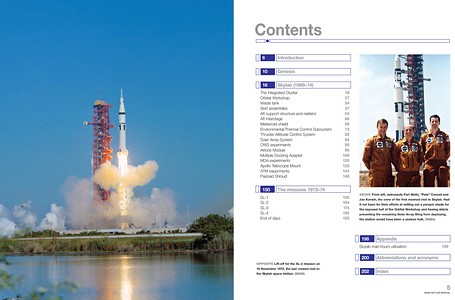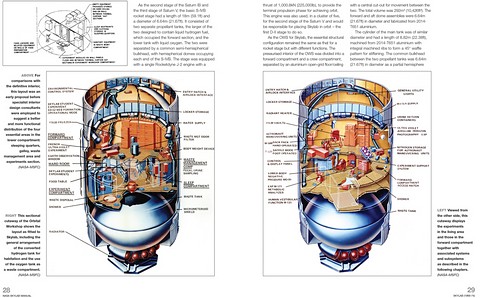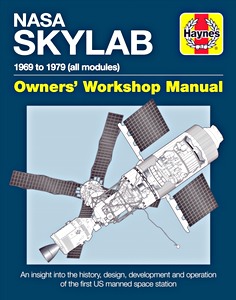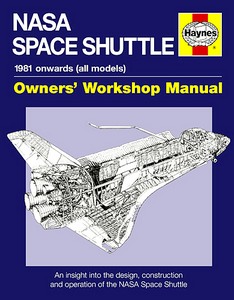Skylab a Guidebook
Skylab's launch in 1973 represented a major milestone in America's space program. Intended to enrich scientific knowledge of the Earth, Sun and space, America's first space station was also intended to prove that humans could live and work in zero gravity for extended periods. The station's design originated from a 1959 proposal by Wehrner von Braun to use an empty rocket stage as an orbiting laboratory - Skylab's Orbital Workshop design was built around a Saturn S-IVB stage.
With a total length of about 117 feet and a mass of 169.950 pounds, the station was about the size of an average house. It included a multi-spectral solar observatory, two docking ports, and Airlock Module with EVA hatches, and a large habitation area. Power on-board came from solar arrays and the fuel cells of the docked Apollo CSM.
Skylab was damaged by vibrations during lift-off, destroying an important meteoroid shield and one of the station's two solar panel arrays. The second array could not be deployed until the crew of the SL-2 mission made an EVA to fix it. The crew remained in space for 28 days, a record eclipsed by the next two missions SL-3 (59 days) and SL-4 (84 days). After the SL-4 crew returned to the Earth in 1974 plans were made to refurbish Skylab, but delays with the Space Shuttle program proved fatal, and the station re-entered Earth's atmosphere and disintegrated in 1979.
Dating from just prior to the station's deployment in 1973, this informative book was originally published by NASA to explain Skylab's mission to the public. Featuring chapters detailing the station's history, design, components, operation, and research projects, it presents an important overview of the Skylab program.
Details
| Autor: | Leland F Belew, Ernst Stuhlinger |
|---|---|
| Ausführung: | 178 Seiten, 21 x 13.5 x 1 cm, kartoniert |
| Abbildungen: | zahlreiche Fotos und Zeichnungen |
| Sprache: | Englisch |
| Verlag: | Periscope Film (USA, 2012) |
| ISBN: | 9781937684884 |

Skylab a Guidebook
Sprache: Englisch
Preis, Verfügbarkeit und Bewertungen auf Amazon und Thalia ansehen
Kaufen bei Amazon DEKaufen bei Thalia DE

